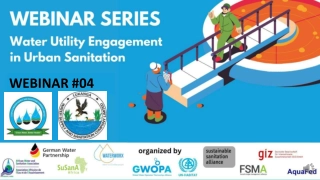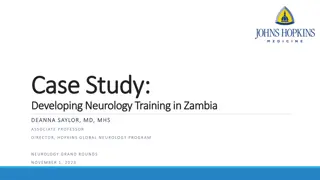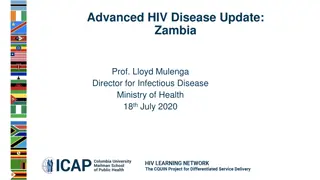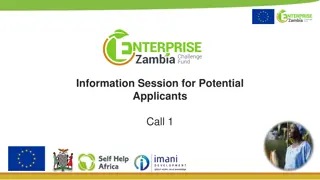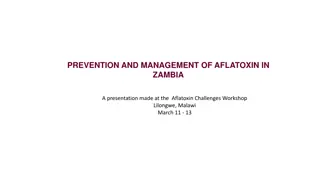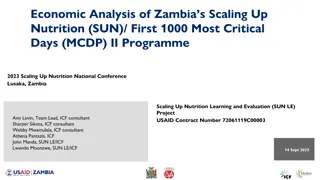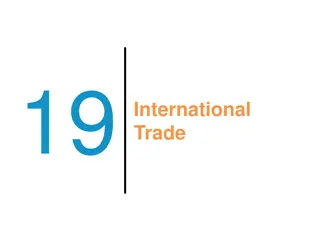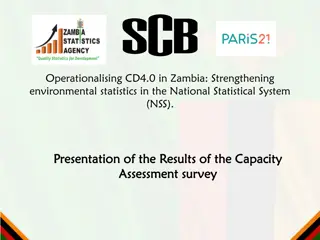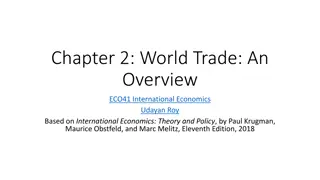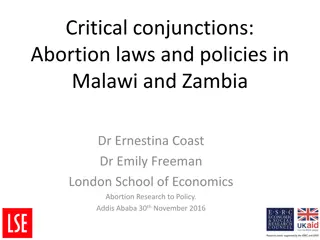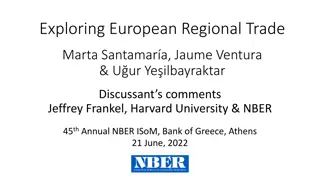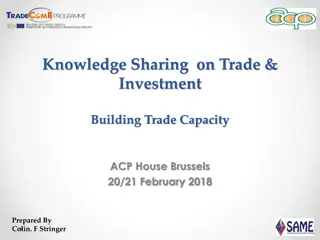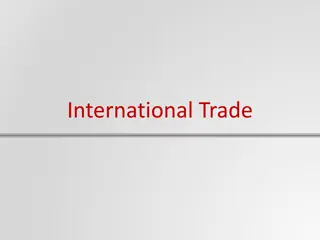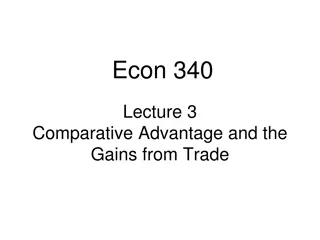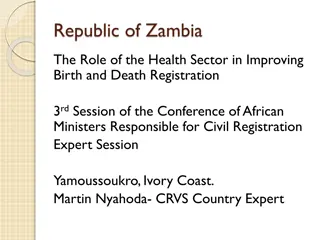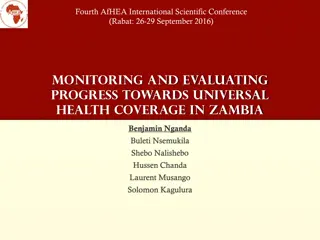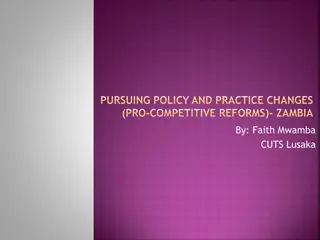Understanding Trade Misinvoicing in Zambia: A Detailed Analysis
Delve into the intricate world of trade misinvoicing in Zambia as explored by Maximilian Mainza, PhD. This study provides insights into the import and export misinvoicing of copper trade, country-specific trends, and the impact of illicit flows on the economy, offering a comprehensive overview of the phenomenon.
Download Presentation

Please find below an Image/Link to download the presentation.
The content on the website is provided AS IS for your information and personal use only. It may not be sold, licensed, or shared on other websites without obtaining consent from the author. Download presentation by click this link. If you encounter any issues during the download, it is possible that the publisher has removed the file from their server.
E N D
Presentation Transcript
Trade Misinvoicing A Zambian Perspective Maximilian Mainza (PhD)
outline Import misinvoicing Export misinvoicing Illicit flows Consequences of illicit flows conclusion
Introduction o Import Misinvoicing o Import Over invoicing o Import under invoicing o Export Misinvoicing o Export over invoicing o Export under invoicing
Copper Trade Misinvoicing($millions) 2005 -2015 ImportOI Import UI Export OI Export UI Total 11.7 -1.5 -652.6 528.9 Average -65.3 48.1 1.5 -0.4
Import Misinvoicing of copper trade Import Misinvoicing Year Over invoicing ($) Under invoicing ($) Import Over invoicing 2005 9670.6 Import Under invoicing 2006 104639.2 2007 -1244.9 89% 2009 -880.4 2010 278472.7 -11% 2011 -2352.6 2012 366090.4 2013 12190.1 2015 -1476005.2
Export Misinvoicing of copper trade Year Over invoicing ($m) Under invoicing ($m) Export Misinvoicing Export over invoicing 2005 -5.6 76.5 2006 -299.6 1.2 Export under invoicing 2007 -44.4 40.8 2008 -186.9 151.1 45% 2009 -1.2 118.4 2010 -55% -55.0 15.4 2011 0.0 21.0 2012 -3.3 29.6 2013 -56.4 0.0 2014 0.0 64.0 2015 -0.1 10.9
Country specific Import OI Import UI 79% from South Africa 100% from South Africa 21% from Australia
Country specific Export OI Export UI 66% to China South Africa 13% China 31% 25% to India Netherla nds 20% China, Hong Kong SAR 0% 7% to Namibia 2% to South Africa India 28% German y 8%
Illicit flows ( $millions) Year Illicit outflows (M O+ XU) Illicit inflows(M U+ X O) Gross illicit flows 2005 76.5 5.6 82.2 2006 1.3 299.6 300.9 2007 40.8 44.4 85.2 2008 151.1 186.9 337.9 2009 118.4 1.2 119.6 2010 15.7 55.0 70.6 2011 21.0 0.0 21.0 2012 30.0 3.3 33.3 2013 0.0 56.4 56.4 2014 64.0 0.0 64.0 2015 10.9 1.6 12.5
Illicit flows ( $millions) Year Illicit outflows (ImportOI+ ExportUI) Illicit inflows (Import UI+ ExportOI) Gross illicit flows 2005-2015 1070.2 1308.1 2378.4
Illicit flows. Hidden Trade Trade data reported as export but not reported as import by the partner country. Switzerland $883.7 million
Consequences Revenue loss Slowed economic growth Reduced investments Reduced employment opportunities Increased income inequalities
Recommendations Need for inclusive policy making to tackle the trade misinvoicing. Improve trade data collection.






